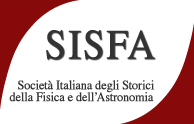Speaker
Description
The presentation will highlight Bruno Touschek’s path towards his fundamental contribution to the birth of matter-antimatter colliders in Europe, from his early years in Vienna, until the conception, building and operation of the first electron-positron collider AdA in the early 1960’s, and the proposal for the larger machine Adone. Since then, particle colliders have become a major research and discovery tool, a long lasting legacy left by Touschek’s pioneering ideas, whose impact has contributed to shape Europe's way to LEP and LHC.
Touschek’s life spans in time and space through war-ravaged Europe up to the post-war reconstruction and relaunch of physical sciences. During this period he acquired what was a unique expertise for that time, merging competences both as a theoretical physicist and an expert of accelerators. When he moved to Italy in the early 1950s, the peculiarity of his scientific profile made him a key figure in the ongoing efforts to reestablish the pre-war leading position, contributing to the renewal and explosive development of Italian physics with his original thought, his multifaceted personality and his very special cultural asset, which made him an unforgettable figure for all who had come in contact with him as friends, colleagues and students.

